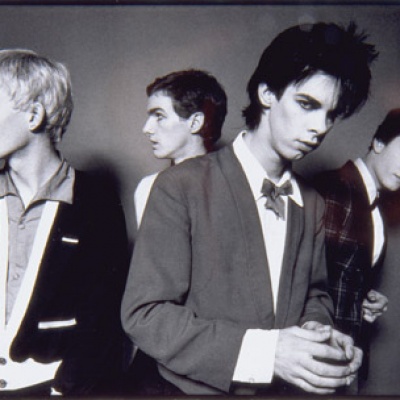
Boys Next Door
by Will Lerner As the cult of Cave grows, more and more non-Australian music fans may discover the Boys Next Door and their lone album, 1979s Door, Door. Singer Nick Cave, guitarist/multi-instrumentalist Mick Harvey, bassist Tracy Pew, and drummer Phil Calvert were disaffected, dissatisfied teenagers growing up in a middle-class section of Melbourne, listening to hard rockin glam acts like the Sensational Alex Harvey Band and Alice Cooper. (It wont surprise anyone to find out that Cave was also informed by country luminaries Johnny Cash and Hank Williams.) They uprooted themselves from the right side of the tracks and settled down comfortably with the junkies and prostitutes in an appropriately run-down area. As the rising tide of punk began to crash on Australias shores, the Boys realized that this was the proper direction for their chaotic, anarchic energies, and homegrown punk heroes like the Saints and Radio Birdman greatly influenced their musical direction. They started working their way towards the top of the musical heap, their live shows quickly becoming notorious as chaotic, noisy, and nasty affairs — characteristics the musicians would later push to the breaking point as the Boys Next Door. This sheer recklessness garnered them a following, the buzz eventually leading to a deal with Mushroom, a successful Australian independent record label. The band recorded six songs before having the good fortune of stumbling upon Rowland S. Howard, who became the bands second guitarist and author of their most popular composition, Shivers. That song, along with three others, was recorded in later sessions that featured the revamped lineup. Shivers became something of an anthem among the Australian punks and was the musical centerpiece in the bleak film Dogs in Space, concerning the sordid lives of a handful of young people in a Melbourne slum. The album that appeared, Door, Door, combined the two recording sessions but was not well-loved by the musicians, as they felt the results were too poppy (comparing it to any of their later releases, especially the albums Prayers on Fire and Junkyard, one cant help but agree). They were rapidly changing their style, anyway, as well as their name: in 1980 they released their first album as the Birthday Party, and soon hightailed it from Australia to London.
